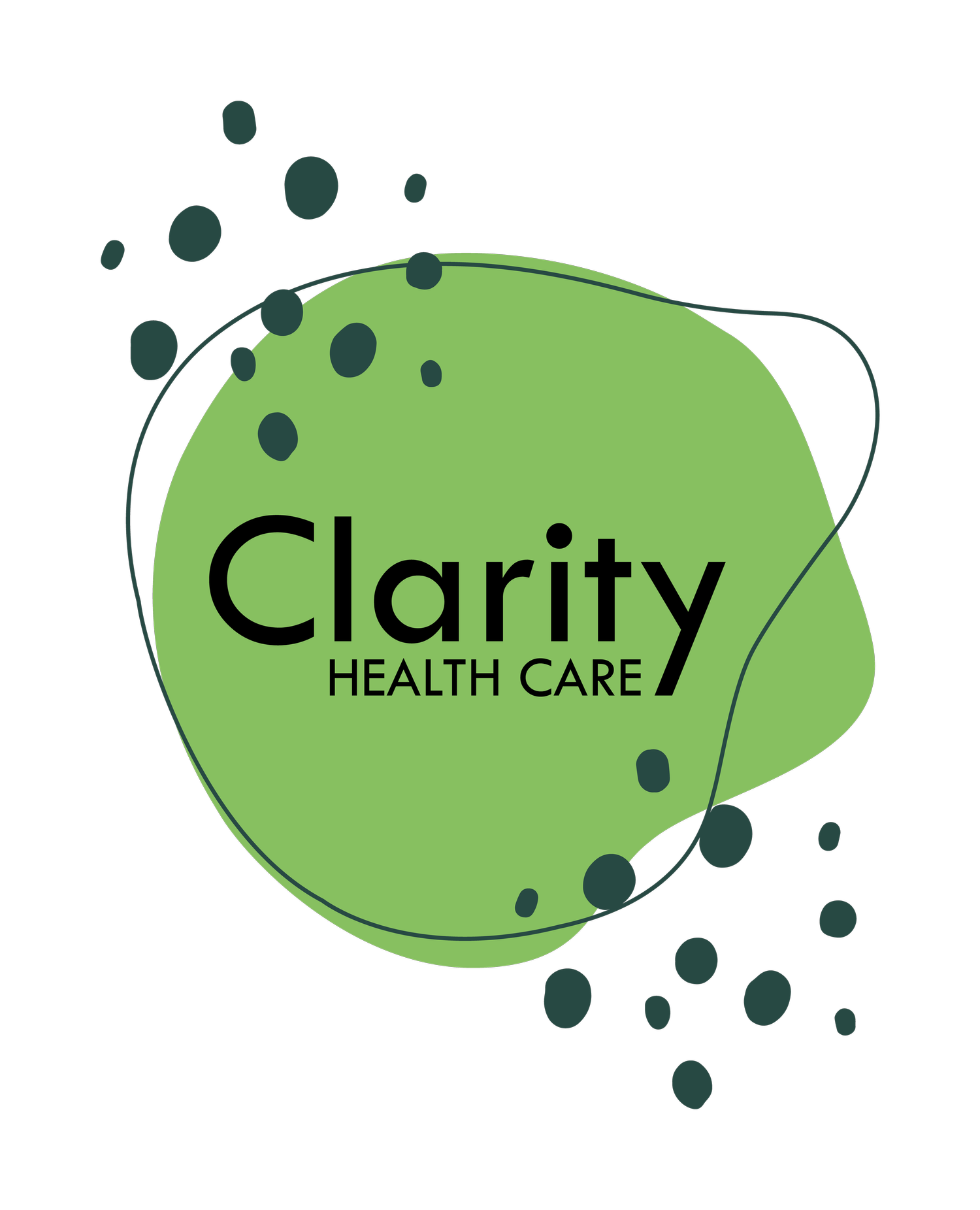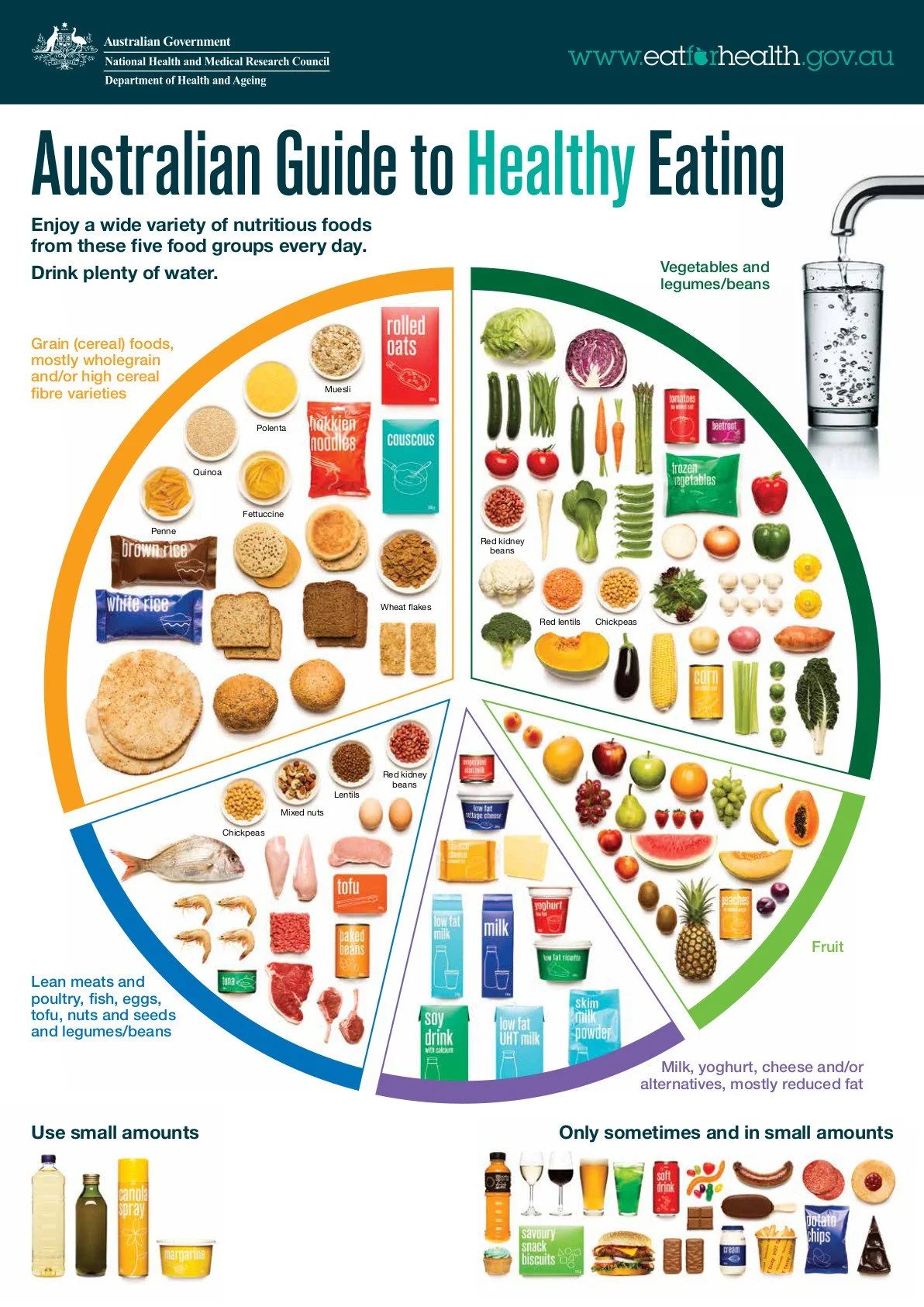Nutritional Strategies: 5 Steps to Feed Your Mind
Written by Aimee Oliveri (Clinical Psychologist & Mental Health Content Creator) in Collaboration with Clarity Health Care.
Most people understand intuitively that there is a connection between nutrition and mental health, and in recent years, there is increasing evidence supporting this. However, the intricacies of this connection are often poorly understood, and let’s be honest, there is a lot of conflicting information and misinformation out there. As such, learning how to harness your nutrition to facilitate your mental health can feel difficult and overwhelming. In this blog post, we'll explore the fascinating connection between mental health and nutrition, offering insights, tips, and practical advice to help you nourish not just your body but your mind as well.
The Gut-Brain Connection
Your gut and brain may seem worlds apart, but they're more connected than you might think. The gut-brain connection is a bidirectional pathway, meaning what goes on in your stomach can influence your mental state, and vice versa.
Have you ever experienced a "gut-wrenching" sensation or felt queasy due to a specific situation? The expressions we use have a basis in reality. That is, our emotions can manifest as physical symptoms in the gut. Similarly, our gut can send messages to our brain. Recent research provides compelling evidence that disturbances in the gastrointestinal system can potentially trigger shifts in one's mood (Johns Hopkins Medicine, 2023).
This phenomenon may explain why numerous mental health conditions, including anxiety, depression, and stress, are often accompanied by digestive problems such as gas, bloating, constipation, diarrhea, and heartburn.
Tip: The best way to maintain a healthy microbiome is to get adequate fibre in your diet. Fibre is only found in foods that come from a plant, including vegetables, beans, legumes, fruit, bread, cereals, nuts and seeds. Australian adult women should be aiming to eat at least 25g of fibre a day, and men 30g (Better Health Channel, 2023).
The Mood Food Connection
Just as there are connections between our gut and brain, there are also connections between what we eat and how we feel. And once again, this link is bi-directional.
Seeking out ‘comfort foods’ or ‘stress eating’ when we are feeling emotionally vulnerable (e.g., anxious, tired, sad or stressed), are examples of how our mood can dictate our food choice and eating habits.
In the same vein, our food choices can impact our mood and emotional vulnerability. For example, consuming foods high in refined carbohydrates and sugars can lead to rapid spikes and crashes in blood sugar levels, resulting in mood swings, irritability, and feelings of fatigue.
Tip: Dark chocolate contains a number of nutritional compounds like polyphenols, an antioxidant that lowers cortisol and induces feelings of pleasure and happiness. Opt for 30 -60 grams of 85% cocoa dark chocolate for a guilt-free treat (Ji-Hee Shin et al., 2021).
Nutritional Strategies for Better Mental Health
Now that we understand the interconnections between our gut and brain, and between our dietary selections and mood, it should be apparent why behaviours like overeating, undereating, or making poor food choices can intensify our susceptibility to emotional distress and impact our well-being.
So, how can we eat to nourish our mental health?
1. A Balanced Diet
Your mental health benefits from a well-rounded diet. Ensure you include a mix of:
Lean proteins, whole grains, fruits, vegetables, and dairy.
Following a Mediterranean-style diet can help you achieve this.
The Australian guide to healthy eating also provides a guide that visually represents the proportion of the five food groups recommended for consumption each day. Click here to download your own guide:
Eat at regular intervals throughout the day. How much you should eat will depend on your age, gender, and individual exercise needs.
Choose less refined sugars (e.g., white sugar, condiments, processed snacks like crisps)
Eat more whole grains (e.g., brown rice, rolled oats)
Include protein at each meal (e.g., chicken, eggs, legumes).
Eat a variety of foods and try not to cut out entire food groups if possible.
Tip: Dr. Drew Ramsey, a psychiatrist, farmer and one of the leading voices in today’s conversation about mental health and nutrition, devised a poem to help people get the most of good nutrients: Seafood, greens, nuts, and beans and a little dark chocolate.
Action Step: Create a weekly meal plan with a variety of foods to keep your diet balanced.
2. Hydration Matters
Dehydration can affect your mood and cognitive functions.
Make sure you're drinking enough water throughout the day - 8 glasses of water per day or 2 litres.
Tip: Set reminders on your phone to drink water regularly.
3. Mindful Eating
Eating mindfully (meaning with your full awareness), without distractions, allows you to make more intentional choices, savour your food and recognise your body's hunger and fullness cues.
Tip: Put away your phone and turn off the TV during meals.
4. Everything Else in Moderation
You don't need to eliminate all your favourite treats and beverages. Instead, enjoy them in moderation.
It's all about balance.
5. Start Small, Start Now
The changes you make in your diet don’t have to be drastic. Making small consistent changes in your diet can lead to significant improvements in your mental health and overall quality of life.
Pick one thing to change and give it your best shot. Examples might include:
Drinking more water
Introducing more vegetables into your diet
Making one of your meals in the day more balanced.
Tip: Focus on whatever feels possible right now.
Closing Thoughts
The relationship between mental health and nutrition is a powerful one. What you put on your plate can have a profound impact on how you feel and function. By making informed food choices and nurturing your body and mind, you're taking a proactive step toward better mental well-being.
At the same time though, while good nutrition is an important component of well-being, it is not a substitute for proper medical care and treatment.
Living in Fitzroy, Melbourne or Sandy Bay, Hobart? Find a psychologist near you. Our team is here to help!
The key interventions that our psychologists, clinical psychologists and physiatrists are trained in include:
Eye Movement Desensitisation & Reprocessing (EMDR Therapy)
Acceptance Commitment Therapy (ACT)
Schema Therapy
Motivational Interviewing
Family and Couples Therapy
Pharmacological Therapy
Articles mentioned
Ji-Hee Shin et al., 2021 - https://www.sciencedirect.com/science/article/pii/S0955286321002746
The Australian guide to healthy eating – https://www.eatforhealth.gov.au/guidelines/australian-guide-healthy-eating
Better Health Channel, 2023 - https://www.betterhealth.vic.gov.au/health/healthyliving/gut-health
Johns Hopkins Medicine, 2023 - https://www.hopkinsmedicine.org/health/wellness-and-prevention/the-brain-gut-connection

